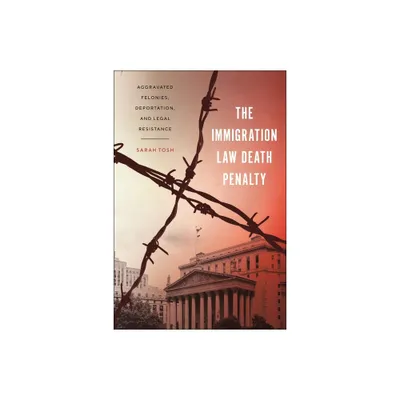Home
Capital Letters: Hugo, Baudelaire, Camus, and the Death Penalty
Loading Inventory...
Barnes and Noble
Capital Letters: Hugo, Baudelaire, Camus, and the Death Penalty
Current price: $34.95


Barnes and Noble
Capital Letters: Hugo, Baudelaire, Camus, and the Death Penalty
Current price: $34.95
Loading Inventory...
Size: OS
*Product Information may vary - to confirm product availability, pricing, and additional information please contact Barnes and Noble
Capital Letters
sheds new light on how literature has dealt with society’s most violent legal institution, the death penalty. It investigates this question through the works of three major French authors with markedly distinct political convictions and literary styles: Victor Hugo, Charles Baudelaire, and Albert Camus. Working at the intersection of poetics, ethics, and law, Ève Morisi uncovers an unexpected transhistorical dialogue on both the modern death penalty and the ends and means of literature after the French Revolution. Through close textual analysis, careful contextualization, and the critique of violence forged by Giorgio Agamben, Michel Foucault, and René Girard, Morisi reveals that, despite their differences, Hugo, Baudelaire, and Camus converged in questioning France’s humanitarian redefinition of capital punishment dating from the late eighteenth century. Conversely, capital justice led all three writers to interrogate the functions, tools, and limits of their art.
shows that the key modern debate on the political and moral responsibility, or autonomy, of literature crystallizes around the death penalty in works whose form disturbs the commonly accepted divide between aestheticism and engagement.
sheds new light on how literature has dealt with society’s most violent legal institution, the death penalty. It investigates this question through the works of three major French authors with markedly distinct political convictions and literary styles: Victor Hugo, Charles Baudelaire, and Albert Camus. Working at the intersection of poetics, ethics, and law, Ève Morisi uncovers an unexpected transhistorical dialogue on both the modern death penalty and the ends and means of literature after the French Revolution. Through close textual analysis, careful contextualization, and the critique of violence forged by Giorgio Agamben, Michel Foucault, and René Girard, Morisi reveals that, despite their differences, Hugo, Baudelaire, and Camus converged in questioning France’s humanitarian redefinition of capital punishment dating from the late eighteenth century. Conversely, capital justice led all three writers to interrogate the functions, tools, and limits of their art.
shows that the key modern debate on the political and moral responsibility, or autonomy, of literature crystallizes around the death penalty in works whose form disturbs the commonly accepted divide between aestheticism and engagement.


















